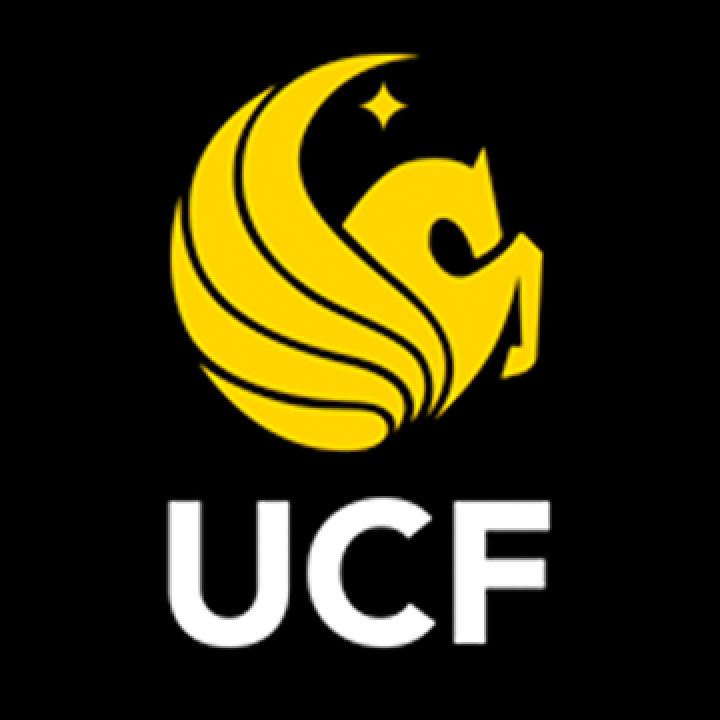预约演示
更新于:2025-08-06
Butein
更新于:2025-08-06
概要
基本信息
原研机构 |
非在研机构- |
权益机构- |
最高研发阶段临床前 |
首次获批日期- |
最高研发阶段(中国)- |
特殊审评- |
结构/序列
分子式C15H12O5 |
InChIKeyAYMYWHCQALZEGT-ORCRQEGFSA-N |
CAS号487-52-5 |
关联
100 项与 Butein 相关的临床结果
登录后查看更多信息
100 项与 Butein 相关的转化医学
登录后查看更多信息
100 项与 Butein 相关的专利(医药)
登录后查看更多信息
879
项与 Butein 相关的文献(医药)2025-08-01·JOURNAL OF MOLECULAR STRUCTURE
Exploring the unseen higher-order optical nonlinearities in natural chalcones for optoelectronic device applications
作者: Karthick, T. ; Suruthi, S. Sai ; Keerthana, V. ; Anumitha, S. ; Lalithambika, K. C.
Flavonoids are in great demand in many cutting-edge research areas because of their unique D-π-A configuration and more abundance in nature.Among the flavonoids, chalcones (open-chain flavonoids) were found to be promising materials for optoelectronic device applications due to their overwhelming nonlinear optical (NLO) activity and charge transfer characteristics.Despite their charge transfer characteristics, the NLO studies on natural chalcones were not much explored.Hence, the present study reports the structure-property relationship of certain natural chalcones (Butein, Cardamonin, Xanthohumol, Isoliquirtigenin, and Phloretin) through quantum chem. computations.To unravel the NLO effects that arise from vibrational and electronic transitions, the nonlinear optical parameters, including dipole moment, polarizability, and first-order and second-order hyperpolarizabilities for each normal mode of the natural chalcones were predicted.The induced dipole moment and polarizabilities of these natural chalcones were compared with simulated IR and Raman spectra to identify the modes responsible for NLO activity.Moreover, the total vibrational polarizabilities and vibrational hyperpolarizabilities of natural chalcones were compared with their electronic counterparts.Since the nonlinear optical media is strongly influenced by the wavelength of the incident light, the first-order and second-order nonlinear parameters and nonlinear refractive index (n2) at different wavelengths were predicted.The results obtained for different wavelengths were analyzed to understand the damage threshold and the magnitude of self-focusing/defocusing effects for nonlinear optical applications.
2025-08-01·BIOCHEMICAL AND BIOPHYSICAL RESEARCH COMMUNICATIONS
Butein arrests the cell cycle and inhibits lipoxygenase-5 and hyaluronidase activities in skin carcinoma cells
Article
作者: Luqman, Suaib ; Raza, Waseem ; Meena, Abha
Skin cancer incidence has drastically increased, causing a significant impact on global health. Increased UV radiation, along with changes in genetic and environmental factors, triggers the uncontrolled proliferation of skin cells. To address the increasing incidence of skin cancer, the discovery of novel treatment strategies is crucial. Natural products are one of the promising and alternative approaches for the treatment of skin cancer, which helps to mitigate the growing global health burden. Butein, naturally present in many plant families, demonstrates significant pharmacological properties, including anticancer activity. It inhibits the metastatic behavior in mouse melanoma cells; however, its effect on human skin carcinoma cell lines remains unexplored. Thus, this study investigates the anticancer potential of butein on skin carcinoma by employing different cytotoxicity assays such as Sulphorhodamine B (SRB), Neutral Red Uptake (NRU), and 3-(4,5-dimethylthiazol-2-yl)-2,5-diphenyltetrazolium bromide (MTT). Further, cell-based assays and molecular interaction studies were performed to explore the inhibitory potential of butein on lipoxygenase-5 (LOX-5) and hyaluronidase, prominent cancer markers. Further investigation revealed that butein arrests cell cycle progression, increases reactive oxygen species (ROS) generation, and disrupts the mitochondrial membrane potential (MMP), leading to both apoptotic and necrotic cell death. In addition, butein possesses good oral bioavailability, drug-like properties, and high gastrointestinal absorption in prediction studies, while it did not alter human erythrocytes' integrity in an ex vivo study, suggesting it is a possible candidate for future trials.
2025-07-01·Waste and Biomass Valorization
In vitro Antioxidant and Enzyme Inhibitory Properties, Phenolic Contents and UHPLC-ESI/MSMS Analysis of Aerial Parts of Anacyclus valentinus L. from the High Plateaus of Algeria (Brezina Province)
作者: Chouh, Amina ; Benamar, Houari ; Bennaceur, Malika ; Hamdani, Djihad ; Bensouici, Chawki
Aerial parts from the herb Anacyclus valentinus L. are traditionally used by the local populations in Algeria to treat infections and several diseases such as diabetes, cholesterol disorders, abdominal pains, indigestion, digestive disorders, colic and pains, and commonly employed in culinary preparationsThey are rich in bioactive compounds, such as terpenes and flavonoids.This work aimed to explore A. valentinus as a potential source of bioactive mols. with food and pharmaceutical applications.Ethanol crude extract and fractions (hexane, chloroform, Et acetate, n-butanol and aqueous) were obtained from aerial parts of this herb and evaluated for radical scavenging activity (RSA) on 2,2-diphenyl-1-picrylhydrazyl (DPPH), 2,2′-azino-bis (3-ethylbenzothiazoline-6-sulfonic acid) (ABTS) and OH radicals, ferric reducing antioxidant power (FRAP), silver ions (Ag+) reducing potential, and for ferric-ion-based total antioxidant capacity.Extracts were also studied for in vitro inhibition of enzymes implicated on the onset of neurol. diseases (butyrylcholinesterase: BuChE) and type-2 diabetes mellitus (T2DM, α-amylase).The total contents of phenolics (TPC), flavonoids (TFC), and tannins (TTC) were determined by colorimetric methods.Qual. analyses of this herb were performed by ultra-high performance liquid chromatog. system coupled with electrospray ionization tandem mass spectrometry (UHPLC-ESI/MSMS).The results revealed that the polar extracts had significant RSA and capacity to reduce iron, and silver ions (Ag+).The extracts had a higher activity toward BuChE and α-amylase, especially the hexane fraction and crude ethanol extractThe n-butanol fraction had the highest TPC (214.64 mg GAE/g DE), Et acetate had the highest flavonoid levels (145.44 CE/g DE), whereas the ethanol crude extract had the highest TTC (402.38 mg CE/g DE).Isorhamnetin (1), scilliglaucoside (2), butein (3), gallocatechin (4), protocatechuic acid hexoside (5), myricetin derivative (6), ferulic acid derivative (7), quercetin (8), luteolin 3-O-glucoside (9), and caffeic acid derivative (10) were identified in Et acetate and n-butanol fractions.The findings suggest A. valentinus as a promising source of biol. active mols. with food, pharmaceutical, and biomedical applications.
100 项与 Butein 相关的药物交易
登录后查看更多信息
研发状态
10 条进展最快的记录, 后查看更多信息
登录
| 适应症 | 最高研发状态 | 国家/地区 | 公司 | 日期 |
|---|---|---|---|---|
| 新型冠状病毒感染 | 临床前 | 印尼 | 2025-04-24 | |
| 结直肠癌 | 临床前 | - | 2022-12-02 |
登录后查看更多信息
临床结果
临床结果
适应症
分期
评价
查看全部结果
| 研究 | 分期 | 人群特征 | 评价人数 | 分组 | 结果 | 评价 | 发布日期 |
|---|
No Data | |||||||
登录后查看更多信息
转化医学
使用我们的转化医学数据加速您的研究。
登录
或

药物交易
使用我们的药物交易数据加速您的研究。
登录
或

核心专利
使用我们的核心专利数据促进您的研究。
登录
或

临床分析
紧跟全球注册中心的最新临床试验。
登录
或

批准
利用最新的监管批准信息加速您的研究。
登录
或

特殊审评
只需点击几下即可了解关键药物信息。
登录
或

生物医药百科问答
全新生物医药AI Agent 覆盖科研全链路,让突破性发现快人一步
立即开始免费试用!
智慧芽新药情报库是智慧芽专为生命科学人士构建的基于AI的创新药情报平台,助您全方位提升您的研发与决策效率。
立即开始数据试用!
智慧芽新药库数据也通过智慧芽数据服务平台,以API或者数据包形式对外开放,助您更加充分利用智慧芽新药情报信息。
生物序列数据库
生物药研发创新
免费使用
化学结构数据库
小分子化药研发创新
免费使用


